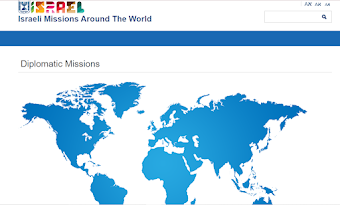Aliyah Basics
Aliyah (literally ‘ascent’) is the tern used to describe Jewish immigration to Israel from the diaspora. Passed in 1950, Israel’s Law of Return guarantees Jews the right to immigration and Israeli citizenship. Since the 1970’s, the right of return has been granted to people with one Jewish grandparent and non-Jews with a Jewish spouse. Those who convert to Judaism under Orthodox law within or outside Israel are eligible, as are those who convert under Conservative or Reform authorities outside Israel. Jews who converted to another religion are not eligible for Aliyah.
Aliyah may be refused to those regarded a threat to the State of Israel, those convicted of murder and other serious crimes, felony fugitives, those considered a serious public health risk, and those who engage in some forms of activity deemed to undermine the cause of Israel and the Jewish people. Non-Jews are able to acquire Israeli citizenship by naturalization, but are not eligible under the Law of Return.
Aliyah from the USA and Canada is administered by Nefesh b’Nefesh in partnership with the Jewish Agency. Aliyah from other countries and from within Israel is handled directly by the Jewish Agency.
The Aliyah process involves filling out an application, providing necessary documents, an interview with an Aliyah agency representative, notification of Aliyah eligibility, issuing an Aliyah visa, and booking a flight to Israel.
The application form is available online, and the necessary documents can be uploaded or sent to the agency office. Documents required include birth certificate, marriage license, divorce certificate, proof of Jewish ancestry or conversion, statements about health, records of travel to Israel, and some applicants are required to provide a criminal background check. A complete list of the needed documents, their requirements, and help locating sources of these documents is available from the relevant Aliyah agency.
After the documents have been received and reviewed, an Aliyah eligibility interview must be conducted. Original documents are reviewed. The Aliyah process, benefits, and absorption programs will be explained. Questions about your current situation and future plans are asked, and advice about Aliyah is available.
If you are found to be eligible, the next step is the issuance of an Aliyah visa (for anyone not a returning Israeli citizen). This is followed by scheduling a flight to Israel. The visa and flight do not need to be arranged immediately. Naturally, many people choose to get a lot done between notification of eligibility and their departure for Israel.
Aliyah flight tickets are provided at no charge, and it is usually possible to make arrangements with the airline for upgrades to travel class and baggage allowance.
Since it is impossible to bring everything needed to live in Israel in your luggage, it is necessary to plan what household goods you will keep and ship to Israel, and what you will do without or replace after arriving in Israel. New Olim are granted exemptions from import duties for some time after Aliyah, and it is not rare for people to arrange more than one shipment over time. Shipping agencies that specialize in Aliyah shipments will be able to smooth the process by helping you understand what may be shipped, handling the Aliyah import documentation, possibly storing goods for a time after arrival, and delivering the shipment to the final destination. Because home sizes, electric current, warranties, service availability, and common appliance dimensions vary between Israel and many countries, it is advisable to carefully consider which furniture and appliances to ship. You may also find that your initial destination in Israel is not your permanent home, so it may be to your advantage to ship less and plan on acquiring things after settling in.
Upon arrival, you will be guided to the Aliyah reception area and representatives will provide you with:
- Temporary Teudat Zehut (identity card). This is currently not issued during Covid restrictions.
- Teudat Oleh (immigration identification).
- Cash payment of the first Sal Klita (absorption basket new Oleh benefit) installment.
- A cell phone SIM card with temporary free phone minutes and data allowance.
- Confirmation of registration with the health fund of your choice.
- A form for the bank to complete when opening a bank account for future Sal Klita payments.
After receiving the items mentioned above and some helpful guides for new Olim, you will be provided with transportation from the airport to the destination you identified during your Aliyah arrangement process.
There are a number of things that need to be done soon after arriving as a new Oleh. Plan on getting these things one in your first two weeks in Israel:
- Get a biometric Teudat Zehut – Whether or not you receive a temporary Teudat Zehut at the airport, you will need to get a permanent biometric version. This is accomplished during an appointment with the Population and Immigration Authority division of the Misrad Hapnim (Ministry of the Interior).
- Open a bank account. This is essential to getting benefit payments. See our article on Banking in Israel for some basics about choosing a bank and branch.
- Contact your local branch of Misrad Haklita for an appointment with a Klita counselor. You can get valuable guidance about benefits and the information and document needed to register in Ulpan.
- Complete your Kupat Cholim (health plan) registration.
If you made Aliyah as the parent of minor children, you should also:
- Apply for the monthly Child Stipend benefit.
- Register children in school.
The following are also time-sensitive, so after you catch your breath, work on the final three goals:
- Register for the Arnona (municipal tax) discount. All municipalities in Israel collect taxes from residents, Almost everyone who owns or rents property in Israel is responsible for this tax, and new Olim get a two-year discount.
- Get a passport. After 3 months, you can apply for an Israeli passport. A temporary travel document will allow you to exit Israel, but you will need a passport in the long term. You can continue to exit and enter your country of origin on the passport from that country, but will need an Israeli passport to enter and exit Israel.
- Convert your driver’s license. Olim have 5 years to complete this process, which allows most drivers to avoid the full licensing process.
Nefeah b’Nefesh offers an excellent post-Aliyah guide which can be found at: https://www.nbn.org.il/aliyahpedia-home/after-you-arrive/
This guide contains updated information on the various benefits, listings of offices, and complete instructions on how to accomplish the steps mentioned above.
SOURCE OF INFO & ARTICLE OWNERSHIP & CONTENT CREDITS REST WITH:
https://aliyahnet.com/aliyah-basics/























